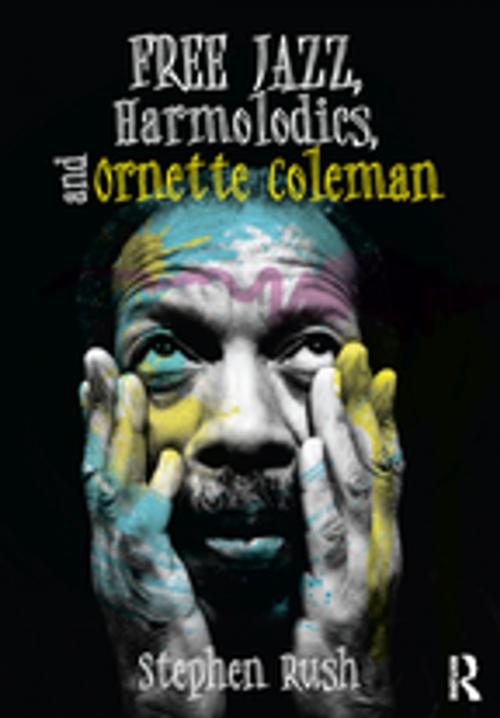Free Jazz, Harmolodics, and Ornette Coleman
Nonfiction, Entertainment, Music, Music Styles, Jazz & Blues, Jazz| Author: | Stephen Rush | ISBN: | 9781317303244 |
| Publisher: | Taylor and Francis | Publication: | November 10, 2016 |
| Imprint: | Routledge | Language: | English |
| Author: | Stephen Rush |
| ISBN: | 9781317303244 |
| Publisher: | Taylor and Francis |
| Publication: | November 10, 2016 |
| Imprint: | Routledge |
| Language: | English |
Free Jazz, Harmolodics, and Ornette Coleman discusses Ornette Coleman’s musical philosophy of "Harmolodics," an improvisational system deeply inspired by the Civil Rights Movement. Falling under the guise of "free jazz," Harmolodics can be difficult to understand, even for seasoned musicians and musicologists. Yet this book offers a clear and thorough approach to these complex methods, outlining Coleman’s position as the developer of a logical—and historically significant—system of jazz improvisation.
Included here are detailed musical analyses of improvisations, accompanied by full transcriptions. Intimate interviews between the author and Coleman explore the deeper issues at work in Harmolodics, issues of race, class, sex, and poverty. The principle of human equality quickly emerges as a central tenet of Coleman’s life and music. Harmolodics is best understood when viewed in its essential form, both as a theory of improvisation and as an artistic expression of racial and human equality.
Free Jazz, Harmolodics, and Ornette Coleman discusses Ornette Coleman’s musical philosophy of "Harmolodics," an improvisational system deeply inspired by the Civil Rights Movement. Falling under the guise of "free jazz," Harmolodics can be difficult to understand, even for seasoned musicians and musicologists. Yet this book offers a clear and thorough approach to these complex methods, outlining Coleman’s position as the developer of a logical—and historically significant—system of jazz improvisation.
Included here are detailed musical analyses of improvisations, accompanied by full transcriptions. Intimate interviews between the author and Coleman explore the deeper issues at work in Harmolodics, issues of race, class, sex, and poverty. The principle of human equality quickly emerges as a central tenet of Coleman’s life and music. Harmolodics is best understood when viewed in its essential form, both as a theory of improvisation and as an artistic expression of racial and human equality.















